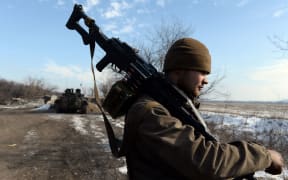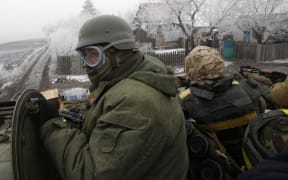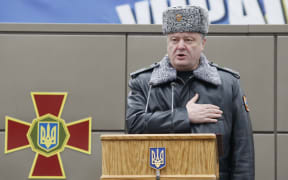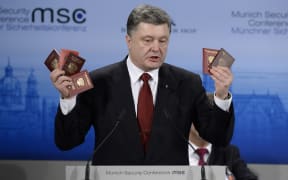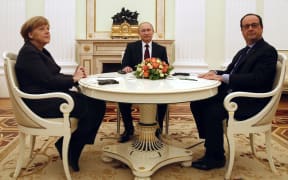Ukrainian government and rebel forces have exchanged dozens of prisoners, a week after a ceasefire came into effect in the east of the country.
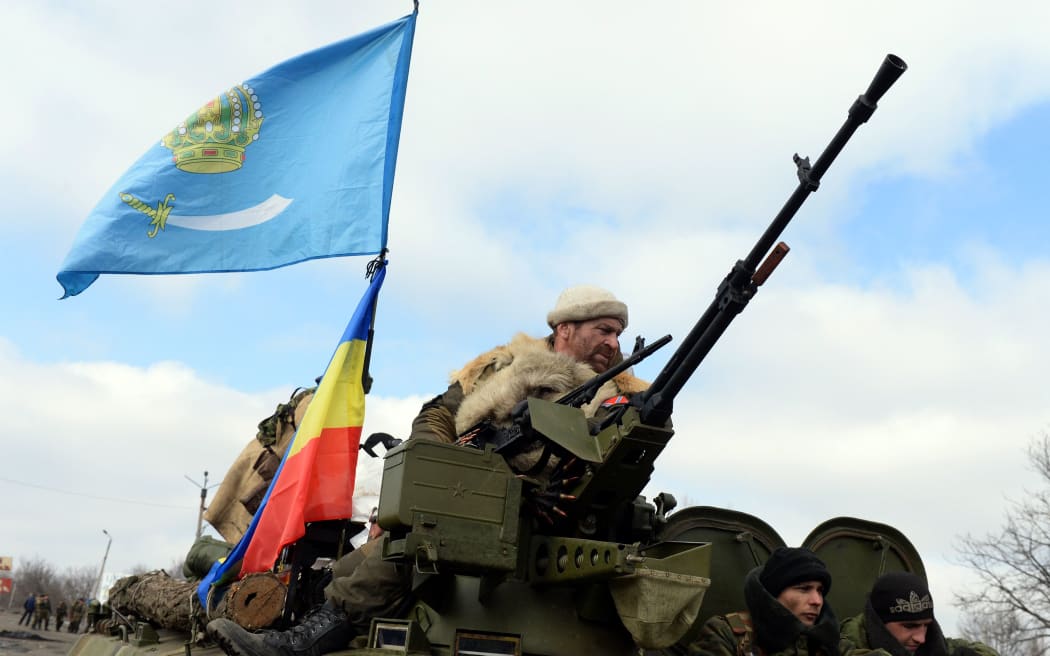
Armed pro-Russian rebels ride an Armoured Personnel Carrier in the eastern Ukrainian city of Debaltseve. Photo: AFP
A total of 139 Ukrainian soldiers were freed and 52 rebels.
The exchange is the first step carried out successfully under the terms of the 12 February Minsk agreements, brokered by France and Germany.
Later on Saturday the rebels reportedly ordered a pullback of heavy weapons, another key part of the ceasefire.
The moves came as the US said it was considering "serious sanctions" against Russia following breaches of the truce.
During a visit to London, US Secretary of State John Kerry said Mr Obama would make a decision on the sanctions in the coming days.
He accused Moscow of "craven behaviour" in its support for the rebels, undermining a ceasefire.
"If this failure continues, make no mistake, there will be further consequences including consequences that will place added strains on Russia's already troubled economy," Mr Kerry said.
But Kremlin spokesman Dmitry Peskov said sanctions would not help solve Ukraine's crisis.
Positive news
Ukrainian President Petro Poroshenko tweeted the news of the prisoner exchange, which took place near the front line town of Zholobok.
139 Ukrainian soldiers have been released from captivity.
— Петро Порошенко (@poroshenko) February 21, 2015
Some of the government soldiers were wounded and walking on crutches.
Mr Poroshenko originally said 140 soldiers would be freed, and Ukrainian officials said one more soldier would be released in the coming days.
The BBC's David Stern in Kiev said the exchange was the first positive news since the Minsk agreements, after a planned ceasefire failed to take hold.
However, the agreements called for a full exchange, and each side reportedly still holds a number of prisoners. It is not clear how many people are still in captivity.
Multiple breaches
Hours later, a Russian general involved in implementing the ceasefire said rebel forces had agreed to begin withdrawing heavy weapons from the frontline.
Alexander Lentsov said the leaders of the self-styled Luhansk and Donetsk people's republics had signed the orders.
"We have designated 22 February as "D-Day" as determined by the agreement from all sides. So from tomorrow we will within the period of 14 days observe the agreement on the pullback of heavy weapons".
The process had been due to start last week and completed by 3 March, but Gen Lentsov said it would now take until 7 March.
A Ukrainian official said the government had been informed of the move, but it was not yet clear whether it was being reciprocated.
Ukraine and rebel forces accuse each other of multiple breaches of the truce, and there were reports of violations around Donetsk and the port city of Mariupol on Saturday.
The rebels took the strategic transport hub of Debaltseve during the week in spite of the ceasefire, arguing the truce did not apply to the flashpoint town, forcing government troops to retreat.
-BBC
